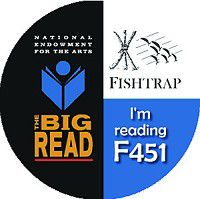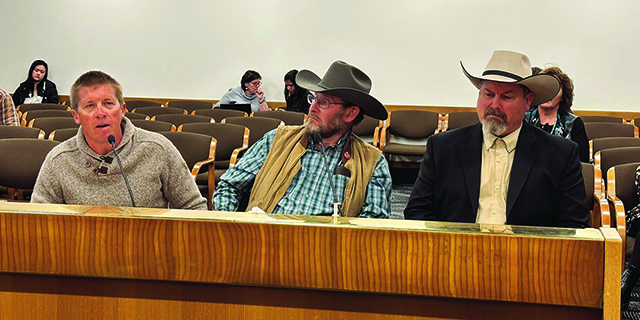Fahrenheit 451 and the love of reading
Published 4:00 pm Wednesday, February 15, 2006

- Fahrenheit 451 and the love of reading
Like many people, I’ve been inspired by Fishtrap’s Big Read program to reread Ray Bradbury’s 1954 novel , Fahrenheit 451. This sinister vision of a future where firemen burn books rather than put out fires is an astute choice for a program which celebrates the importance of reading and the power of books. Fahrenheit 451 was one of the first “serious” books I ever read, and what I remembered from my youthful reading was the terrifying depiction of technologies run amok – book-burning flamethrowers, omnipresent video screens, and, of course, the implacable Mechanical Hound that roots out any deviant who presumes to read a book or harbor an individual thought. Now 50 years old, Fahrenheit 451 no longer seems prophetic. It’s simply a perceptive description of tendencies that continue to shape modern mass society.
Among those tendencies is an impatience with ideas, a distaste for the sheer messiness of thought. As Bradbury’s infernal Captain Beatty puts it, “What traitors books can be! You think they’re backing you up, and they turn on you. Others can use them, too, and there you are, lost in the middle of the moor, in a great welter of verbs and adjectives.”
Trending
Modern society, he believes, is too vast to tolerate intellectual subtlety, too focused on happiness to entertain ambiguity: “If you don’t want a man unhappy politically, don’t give him two sides to a question to worry him; give him one. Better yet, give him none.” Bradbury’s chilling twist, then, is to imagine a world in which books are burnt, not because people want to read them, but simply because they don’t.
What Fahrenheit 451 imagines, then, is something far more frightening then the suppression of thought or the elimination of books. It depicts the end of the love a reading, the waning of that affection for study, writing, and discussion that has been with us at least since the Renaissance, when “modern men,” as Dante called them, began to rediscover the books and ideas of the past on the way to imagining their future. Bradbury’s story is, of course, a fable – the well stocked shelves of our libraries and bookstores continue to beckon us, and it’s still legal to own a copy of Gulliver’s Travels. But he means to warn us nonetheless that it is all too easy to become disenchanted with intellectual pursuits and wary of books. When people say that literature is elitist, or history too academic, when they claim that most people prefer simple truths to complex ideas, one hears disturbing echoes of Captain Beatty’s dire sentiments.
Fahrenheit 451 reminds us that the flame of a burning book is a hideous parody of that fire which reading rightly enkindles in our souls, the flickering of thoughts and flaring of ideas which Bradbury’s hero rediscovers, to his peril, when he picks a book from the ashes: “In all the rush and fervor, Montag had only an instant to read a line, but it blazed in his mind for the next minutes as if stamped there with fiery steel.”
If that flame is ever extinguished, we will have only ourselves to blame.
Editor’s note – Christopher Zinn is the Executive Director of the Oregon Council for the Humanities. He will be a panelist for The Big Read grand finale on March 13. Call Fishtrap at 426-3623 for details.









